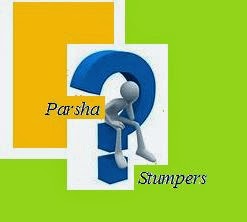Parshas Shoftim - Parsha Stumpers

פרשת שופטים Parsha Stumpers and Something to Think About (16:21) The Medrash Rabbah says that Shlomo HaMelech's throne had 6 steps leading up to it. On each step was one of six consecutive לא תעשה found in this week's parsha . What are they and what is the connection between them? (see Kli Yakar) (17:18) There are three important dinim pertaining to a melech . What are they and where is there a remez to them in the word כסא – as if to say that a king who keeps these three things will merit to stay on the כסא ? (see Kli Yakar) Rashi (16:22) explains that Hashem despises things which goyim use for avoda zarah. If this is so, why are we allowed to have a mizbe'ach? Rashi (17:6) writes that if three witnesses come to testify, they do not become eidim zomemin until all three of them become zomemin. Why should this be true? How could we even understand the din of eidim zomemin ? They never even completed the evil they intended to do!? Rashi (17...

